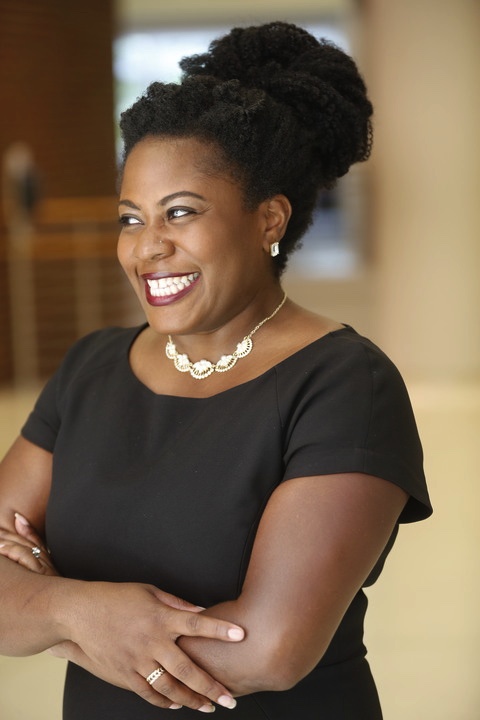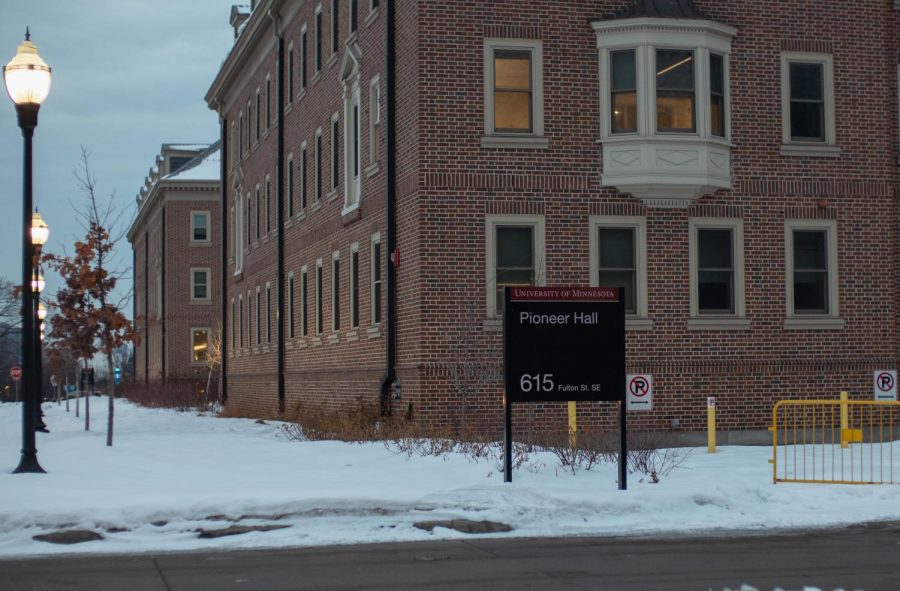In February, the University of Minnesota’s School of Public Health received a $5 million grant from Blue Cross and Blue Shield of Minnesota to create the Center for Antiracism Research for Health Equity.
The vision behind the center was formed by Dr. Rachel Hardeman, a tenured associate professor in the School of Public Health Division of Health Policy and Management. She will be the founding director of the center to advance racial health equity through research and community-centered action.
Hardeman said in an email to the Minnesota Daily that during middle school and high school, she spent evenings and weekends going to doctors’ appointments with her grandmother, who suffered from kidney failure.
She added that her grandmother experienced discrimination and indifference from her medical providers. Eventually, she decided to stop treatment that was keeping her alive.
“At age 16, I lost my grandmother because she was tired of dealing with a health care system that didn’t seem to care about her,” she said in her email. “This is why I went to school at the University of Minnesota and now work here: to influence our systems to do better by our communities of color.”
Hardeman was born and raised in Minneapolis. She is starting new projects to examine the impact of police violence and over-policing on maternal-infant health as well as working with doctoral students in her research lab titled “Measuring and Operationalizing Racism to Achieve Health Equity.”
Her career has focused on researching racial health inequities and reproductive health equity, including the effects of structural racism in health.
“The center is a natural evolution of my life and career. I have deep roots in Minnesota and our communities of color, and I strive to have my research directly connect back to communities,” Hardeman said in the email. “My vision for the center is manifested from my commitment to achieve racial justice and optimal health for Black communities and other communities of color.”
To Hardeman, “structural racism is a solvable problem, and we all have a role to play in confronting it.”
The center will focus on five areas, including developing antiracist research on the impact of racism on health, serving as a trusted resource to outside organizations on issues related to racism and health equity and changing the narrative about race so whiteness is not the “ideal standard for human beings.”
At this time, the center’s timeline and development is in the planning process.
“In the next several years, we hope that the Center will have established strong community partnerships, be actively conducting community-based research, and be a trusted source of information and innovation,” Hardeman said in her email.
In July, she became the first Blue Cross Endowed Professor of Health and Racial Equity as part of the Blue Cross Blue Shield of Minnesota’s mission to end racial and health inequities. The donation gift is the largest ever received to a center at the School of Public Health.
Dr. Mark Steffen, Blue Cross Blue Shield of Minnesota’s chief medical officer and vice president, said in the future the organization will continue to collaborate with the University as a whole and learn from Hardeman’s work.
“More importantly, [the center will] help us think about what are going to be those important strategies that we, as a health plan, can deploy that improves the health equity for the members in the communities that we serve,” he added.
Around six years ago, J’Mag Karbeah met Hardeman when she applied to be a teaching assistant for one of Hardeman’s classes. While pursuing her master’s degree in maternal and child health, Karbeah said the lack of discussion around racial health disparities in reproductive health and institutional barriers made her training feel incomplete.
But when she met Hardeman, Karbeah said her experience at the school changed.
“It was the first time that I felt my ideas had a place within public health and that these larger ideas about systems and history could really be incorporated into current public health practice,” she said.
At a meeting almost five years ago, Karbeah said she had whispered about possibly pursuing a Ph.D. program. When Hardeman heard, Karbeah said she fully supported and encouraged her. Now, as a Ph.D. student, Karbeah has Hardeman as her academic adviser.
“I honestly applied to Minnesota’s Ph.D. program because I knew there was the possibility [Hardeman] could be my adviser and we’ve worked together ever since,” Karbeah said.
Hardeman’s passion to advance racial health equity stems from her personal journey. She said she is determined to continue doing what she loves.
“Advancing racial health equity is advancing the health, dignity, and opportunity for people I love most. By doing my research, I honor my parents, grandparents, and ancestors, and I build a better future for my daughter,” Hardeman said in her email.



























Jakub Čišecký
Mar 26, 2021 at 8:27 am
the greatest racists are blacks
A Gopher
Mar 16, 2021 at 4:06 pm
I hope this center will also look at the mounting black on asian crime epidemic that has sprung up on campus. One of the football players recently attacked an asian student, but we know only white people can be racist so nothing will come of it.